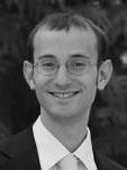Dr. Moshe Looks
Moshe Looks, Ph.D. is Software Designer and Researcher at Google where he conducts research in program induction and artificial general intelligence.
Moshe is a practitioner of artificial intelligence as originally conceived: a sister discipline of cognitive science, concerned with the mechanization of human thought. His approach is integrative and based on the construction and combination of methods and inductive biases that exploit progressively more and more of the patterned structure of reality. Eventually, this will exceed the limited amount of structure that humans currently exploit. Along the way, he uses these methods to build systems that solve hard problems in computational biology, defense, and finance.
How to guide the construction of these methods? Where do good inductive biases come from? He claims that the best approach, at present, is to draw inspiration from human cognition, at the level of Marr’s computational theory (description of the problems the system attempts to solve). This contrasts with approaches to AI that ignore cognitive science, as well as those that attempt to copy the algorithms and representations of human cognition (which are not yet very well understood — as Marvin Minsky recently put it, “neuroscience has no theory for the middle level”), or its implementation (neurons).
Moshe coauthored Backbone guided local search for maximum satisfiability, A novel local search algorithm for the traveling salesman problem that exploits backbones, NL Comprehension via Integrative AI and Human-Computer Interaction, Toward a Pragmatic Understanding of the Cognitive Underpinnings of Symbol Grounding, Novamente: An Integrative Architecture for General Intelligence, Mixing Cognitive Science Concepts with Computer Science Algorithms and Data Structures: An Integrative Approach to Strong AI, and Exploring Android Developmental Psychology in a Simulation World.
Moshe earned a Bachelor’s Degree (magna cum laude) in Computer Science from The Hebrew University of Jerusalem in 2002, a Master’s Degree in Computer Science from Washington University in St. Louis in 2005 with the thesis Learning Computer Programs with the Bayesian Optimization Algorithm, and a Doctorate in Computer Science from Washington University in St. Louis in 2006 with the dissertation Competent Program Evolution.
Read his LinkedIn profile.
